Business & Management
Dissemination Workshop: Government and Regulators urged to formalize the informal sector
Published
5 months agoon
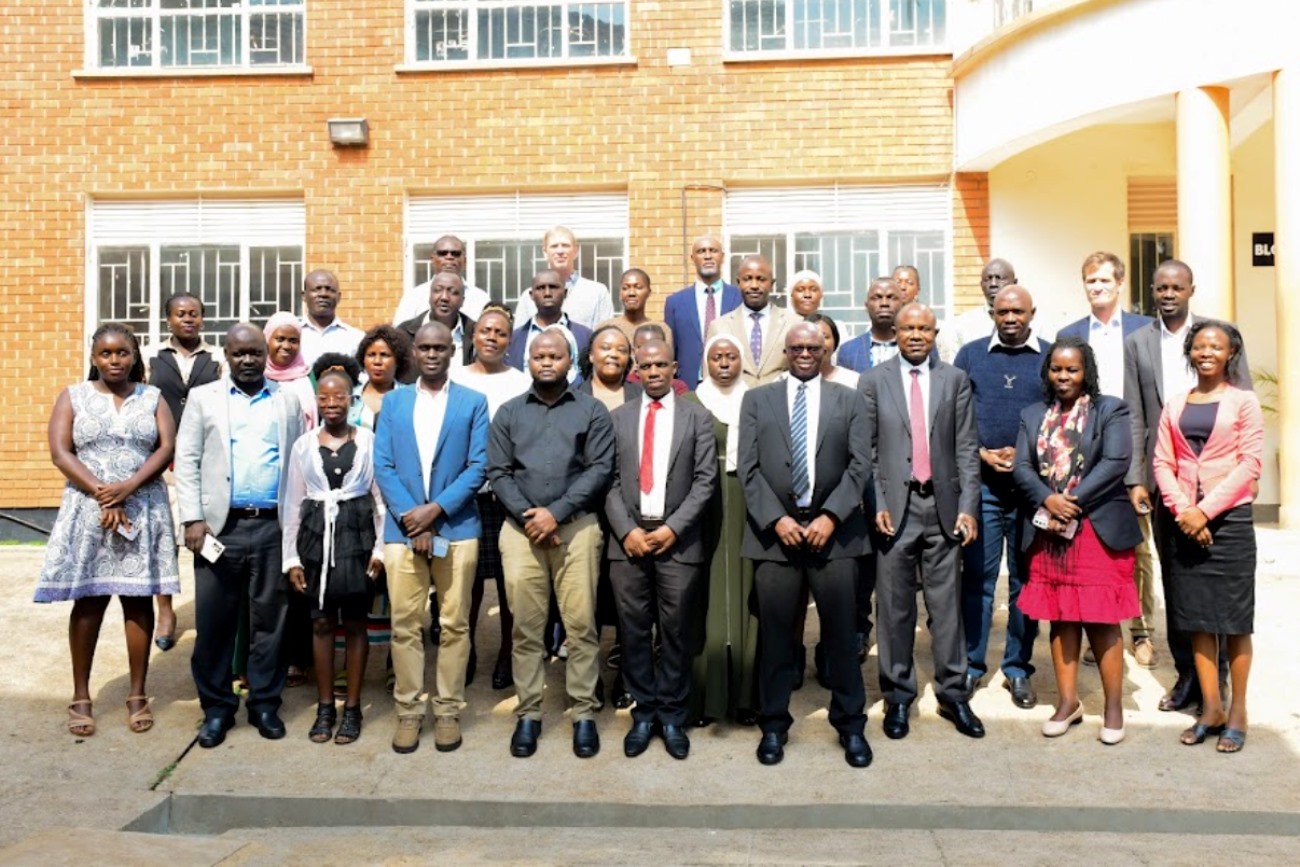
On 29th August 2025, researchers from Makerere University College of Business and Management Sciences and the Copenhagen Business School, in partnership with Uganda Small Scale Industries Association disseminated the key findings and policy recommendations aimed at impacting both the informal and formal sectors in Uganda.
The dissemination workshop follows an intensive and participatory research project, which presents insights from a large scale study of over 1,100 small-scale firms across Uganda. Hosted at Makerere University, the dissemination workshop on Firm Formalization and Sustainable Development, brought on board key stakeholders including regulators, policy implementers, researchers, industry partners, the private sectors, manufactures, the academia, business men and women from the informal sector, and the media.
Approximately 90% of Small and Medium Enterprises (SMEs) in Sub-Saharan Africa operate in the informal sector. Uganda’s informal economy employs the majority of workers, but is characterized by low productivity and unsustainable practices. In Uganda, nearly 78% of the working population operate in the informal economy, spanning from street vendors to large unregistered businesses. Firms may choose to remain informal to hinder the accessibility of tax information, which consequently affects the government’s ability to mobilize domestic revenue. While informality provides livelihoods and informal firms may enjoy a significant degree of adaptability and flexibility, they typically face low productivity, limited worker protection, and environmentally harmful practices.
In 2022, an interdisciplinary team of scholars and practitioners embarked on research to examine the informal sector, gain a deeper understanding of the informal sector, as well as, its impact on sustainable development. The research team conducted field experiments and survey-based studies between 2022-2024 to evaluate the links between formalization and sustainable development.
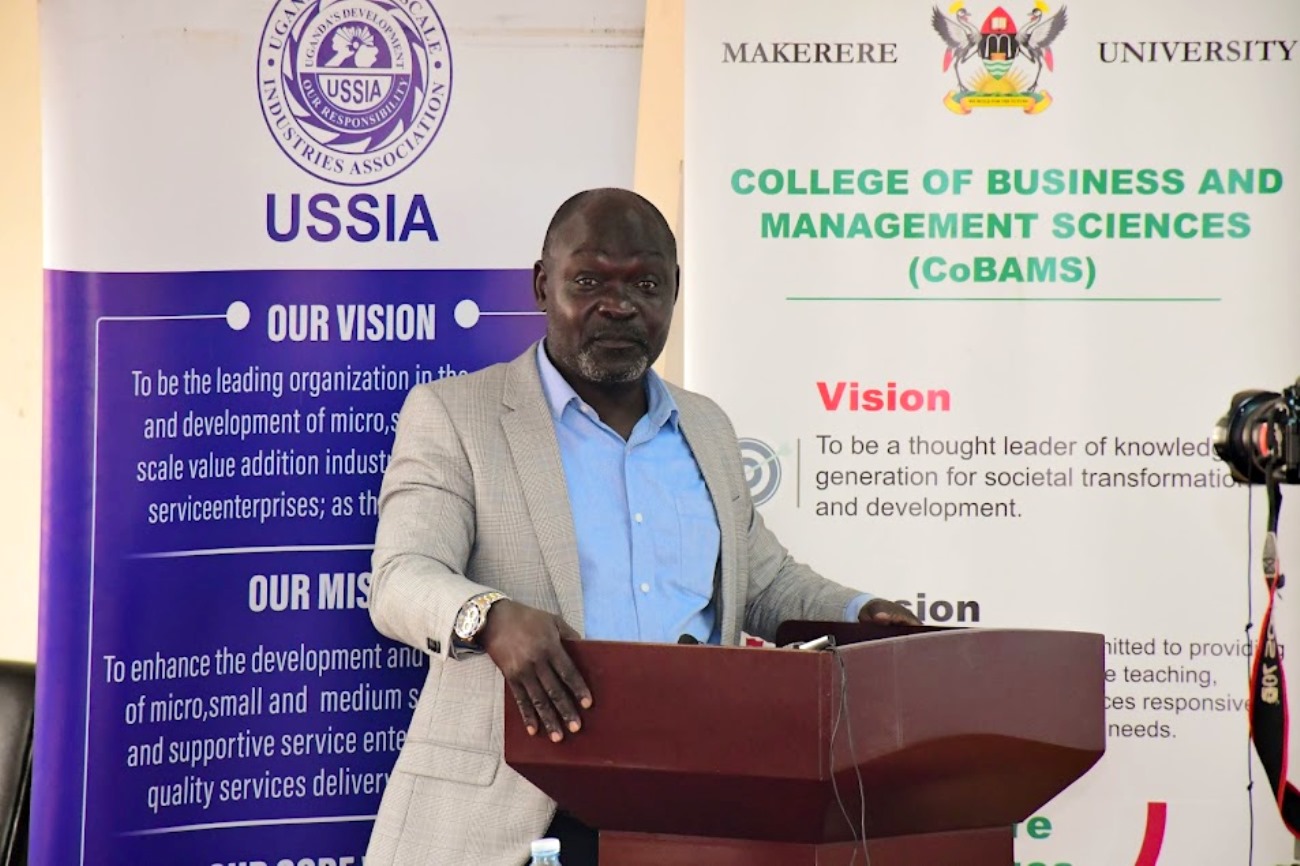
Led by Prof. Marcus M. Larsen as the Principal Investigator, the research team consisted of the following the members: Prof. Faisal Buyinza-Local Principal Investigator, Dr. John Seruyange-Makerere University School of Economics, Dr. Ismail Kintu and Dr. Yusuf Kiwala-Makerere University School of Business, and Prof. Rebecca Namatovu-Copenhagen Business School. The research was funded by the Independent Research Fund Denmark.
“Our research shows that formalization can promote sustainable development, but outcomes differ by type: URA tax registration drives the most meaningful improvements in business, labour, and environmental practices, while URSB business registration mainly boosts legitimacy and local government licensing lags behind. To realize Uganda’s green and inclusive growth goals, formalization must be coupled with sustainability incentives, targeted reforms, and strong support from government, business associations, and civil society. From the policy perspective, the government needs to simplify the legitimization process through increased proximity of the registration centres for SMEs to leverage the benefits of formalization.”
Opening the dissemination workshop, the Principal of the College of Business and Management Sciences-Prof. Edward Bbaale represented by the Deputy Principal, Professor James Wokadala, emphasized the significance of the study in shaping Uganda’s development agenda. He underscored that Makerere University is committed to undertaking research with partners to drive inclusive growth and sustainable economic development. The Deputy Principal noted that the interdisciplinary research team combining the global north and global south expertise, positions the College of Business and Management Sciences at Makerere University, to produce impactful research to influence policy and practice at the national and global levels.
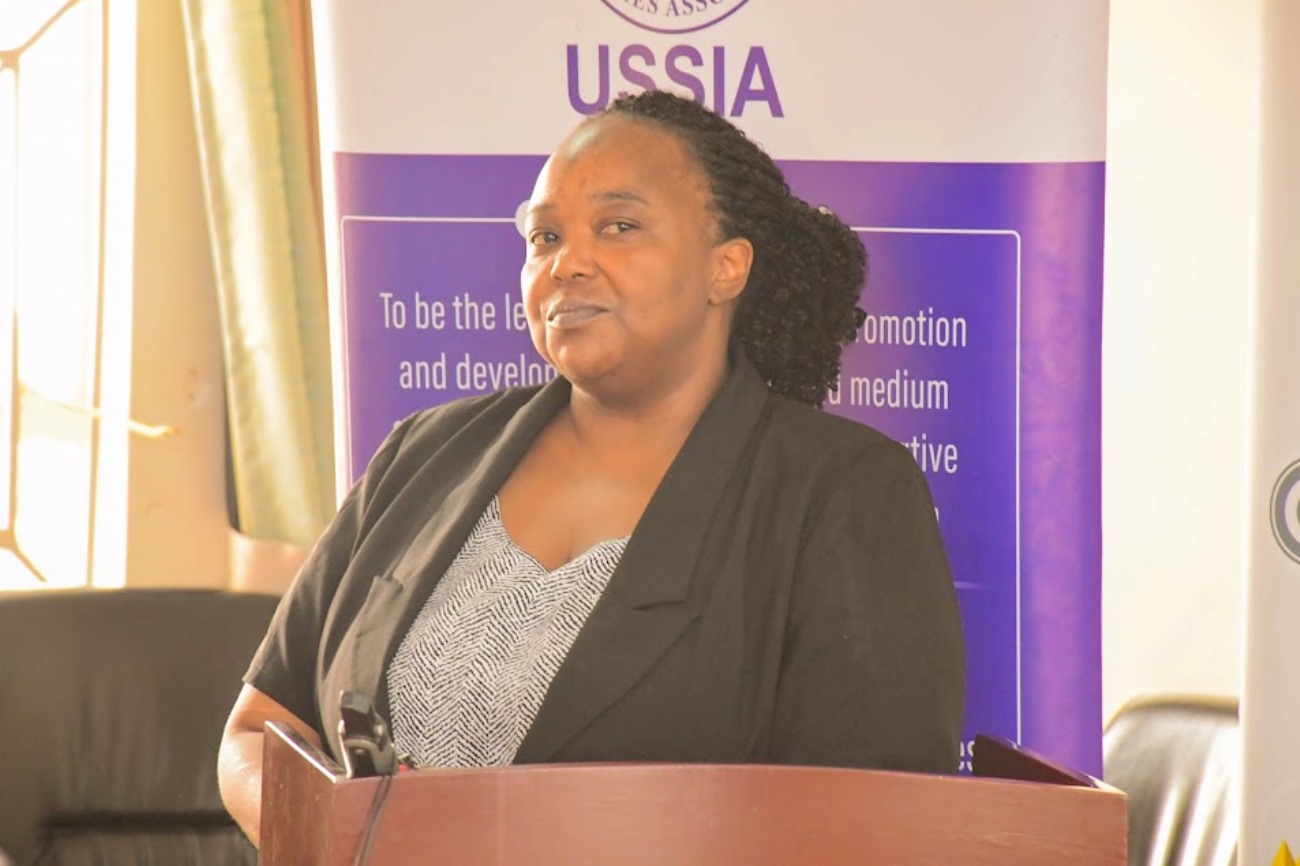
Unpacking the key concept in the research project, Ms. Veronica Namwanje, the Director of Uganda Small Scale Industries Association (USSIA) explained that formalization goes beyond business registration. “Formalization is about strengthening enterprises to grow sustainably,” she articulated. Commending the partnership between USSIA and the School of Economics at Makerere University, Ms. Namwanje stated that this collaborative learning experience will strengthen SME’s in Uganda. “This research will significantly impact Uganda’s economy. 75% of the labour force is employed in the non-formal sector. The research will support over 12,000 member SMEs across Uganda,” she said.
Building on the remarks from the College Principal and the Director of USSIA respectively, the Moderator of the dissemination workshop, Dr. Anthony Tibaingana called upon the project Principal Investigator, Prof. Marcus Larsen from Copenhagen Business School, to present to the audience, the gist of the research on formalization and sustainable development.
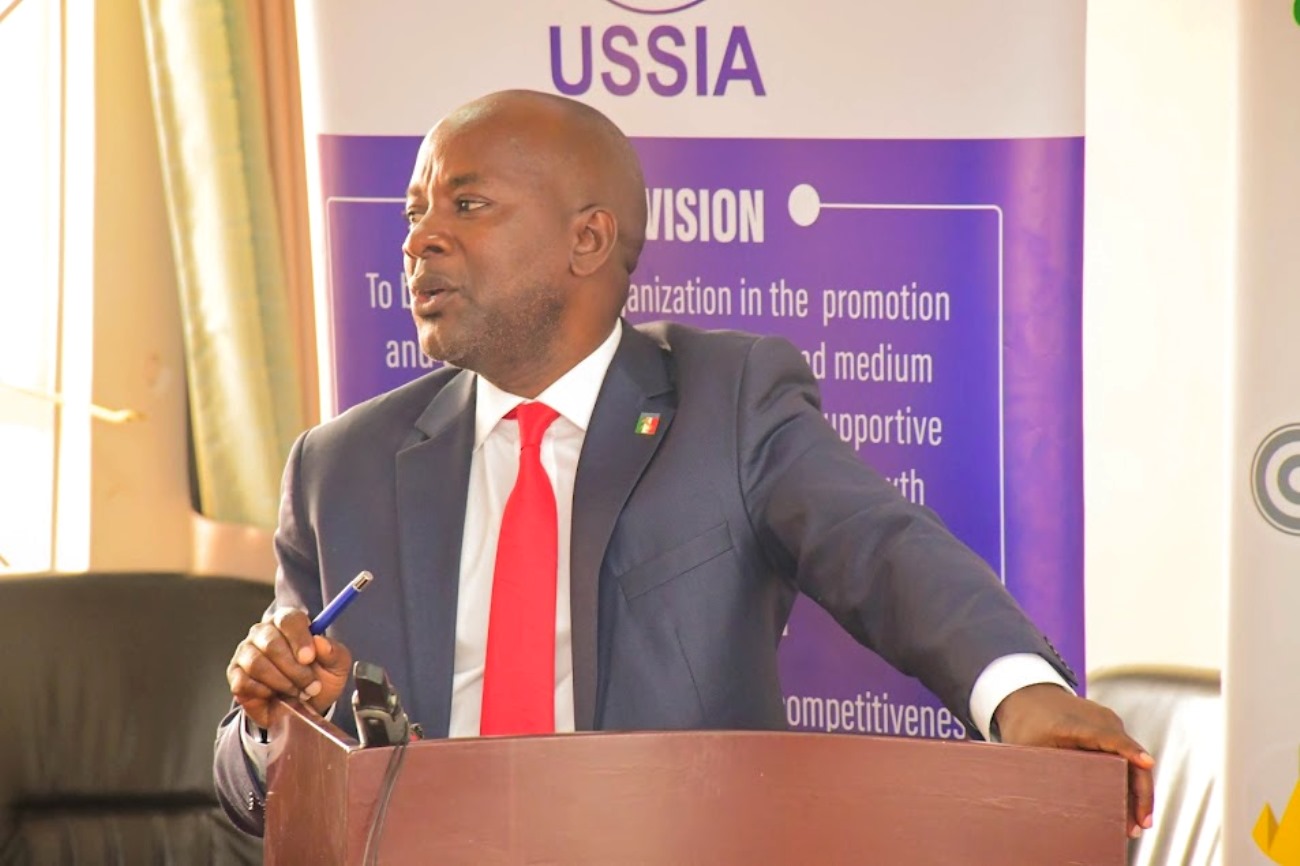
Prof. Larsen commenced his presentation by acknowledging the Local Principal Investigator, Prof. Faisal Buyinza and Makerere University researchers in Economics and Business for their commitment and dedication. “This project started in 2022. You have worked with me wholeheartedly. Thank you for being true partners,” he remarked. Prof. Larsen explained that this research exposed him to the beautiful country called Uganda, its fine weather and hospitable people. As this particular research project comes to an end, he leaves Uganda and Makerere University with good memories, of working with people, committed to the transformation of society.
Setting the pace into his presentation that provided a strong case for formalization of business given its contribution to inclusive growth and development of any country, Prof. Larsen provided a comparison between the Global north where formalization is a norm. “The Global North has zero tolerance for informal practices. In the Global North, you must be formally registered to operate a business,” he reported.
In the Global South, Prof. Larsen disclosed that the research studies proved that the number of firms under the informal sector was quite high. Through the research project, Firm Formalization and Sustainable Development in Uganda, they observed that many small scale businesses operate without any form of registration, from the Uganda Revenue Authority (URA) and the Uganda Registration Services Bureau (URSB).
With over 78% of the working population employed in the informal economy through numerous establishments (ILOSTAT, 2024), Prof. Larsen stressed that the situation in Uganda, necessitates a combined effort to ensure formalization of businesses/firms. He notified the audience about Sustainable Development Goal (SDG) 8.3, which encourages the formalization and growth of micro, small and medium sized enterprises. He also made reference to Uganda’s 4th National Development Plan, which states, and I quote: “This dual nature of informality contributes to low productivity, survival and growth of enterprises, as well as, limiting effectiveness of government policy incentives.”
Prof. Larsen argued that addressing high firm informality in the Global South through formalization can unlock growth, enable access to resources, spur sustainable development, drive inclusive growth, and contribute to the realization of Sustainable Development Goals (SDGs).
Examining SMEs and the environment, Prof. Larsen reported that the research findings indicated that that environmental issues are given less attention by SMEs. “Informal workers are particularly affected by and affect climate change. Most of the interactions proved that informal workers use environmentally unfriendly practices,” he stated. Prof. Larsen together with the research team advocated for a transition to formalization of firms, which leads to environmental sustainability with decent workers.
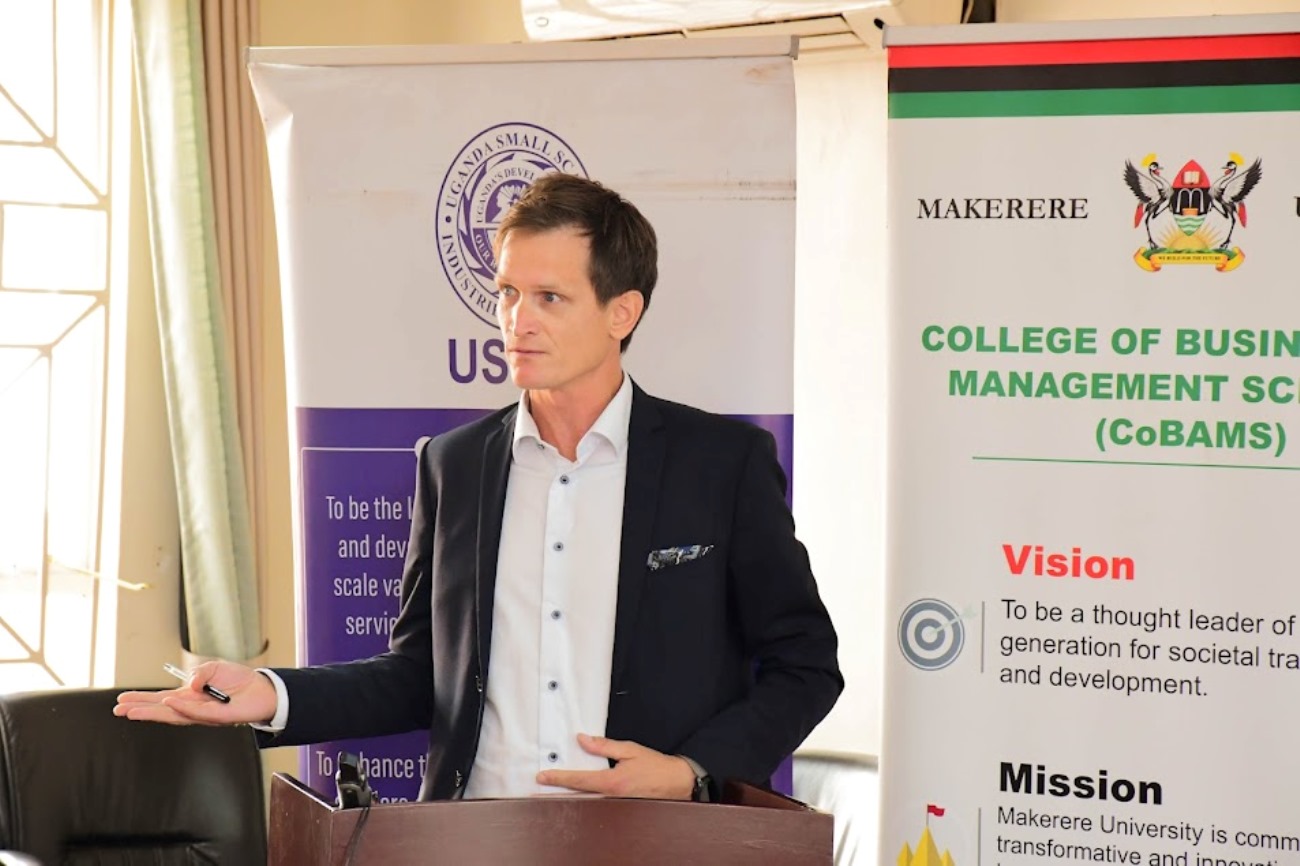
The research team observed that informal workers suffer from job insecurity, and in most cases, their employers do not remit their social protection funds. For instance, in Uganda, most of the workers in the informal sector did not have any contributions with the National Social Security Fund (NSSF).
Presenting the key research insights, Prof. Larsen focused on the formalization and practices, interpretation for policy makers, and SME survival and sustainability. Formalization and Practices provided hints on URSB (business registration), URA (Tax Registration) and Local Government (Trading Licenses).
Providing the interpretation for policy makers, Prof. Larsen elaborated as follows: URSB formalization mainly signals legitimacy, but has limited impact on deeper practices; URA formalization, though resisted initially, delivers the strongest and broadest improvements in business, worker and environmental practices once firms adopt it; and Local government licensing is associated with negative or weak outcomes indicating a need to reform systems to better incentivize sustainability.
On SME Survival and Sustainability, the key research insights include the following:
Financing: MSMEs that started with external financing were 12% more likely to survive than those using internal funds.
Gender: Male owned MSMEs had a higher survival rate (+13%) due to greater access to resources, though firms owned by females reported stronger sustainability orientations.
Location: Urban-based firms had 10-20% higher survival than rural firms, though rural enterprises displayed higher sustainability practices overall.
Education: Owners with university education had survival rates 17 to 24% higher than those with primary schooling.
Business associations: Female-owned MSMEs in associations had 13 to 16% higher survival rates
Registration effects: Surprisingly, longer registration with URA/URSB was associated with slightly lower survival rates (1 to 4%), pointing to burdens of compliance.
The Local Principal Investigator, Prof. Faisal Buyinza, advocated for multi-faceted policies to empower SMEs in Uganda for instance, through simplifying registration, providing green tax incentives, protection of workers and guarding against counterfeit products. Prof. Buyinza presented the following policy recommendations:
- Raising sustainability standards in business formalization
- Building green and fair fiscal systems
- Strengthening social protection and green employment
- Enhancing entrepreneurial skills for sustainability
- Promoting youth and ago-led green innovation
- Advancing women’s leadership in sustainable enterprises
- Digital transformation for green formalization
- Civil society and employer advocacy for just transition
The participants delved into an interactive question and answer session moderated by Prof. Eria Hisali, former Principal of the College of Business and Management Sciences, who provided strategic guidance and oversight at the inception of the research project.
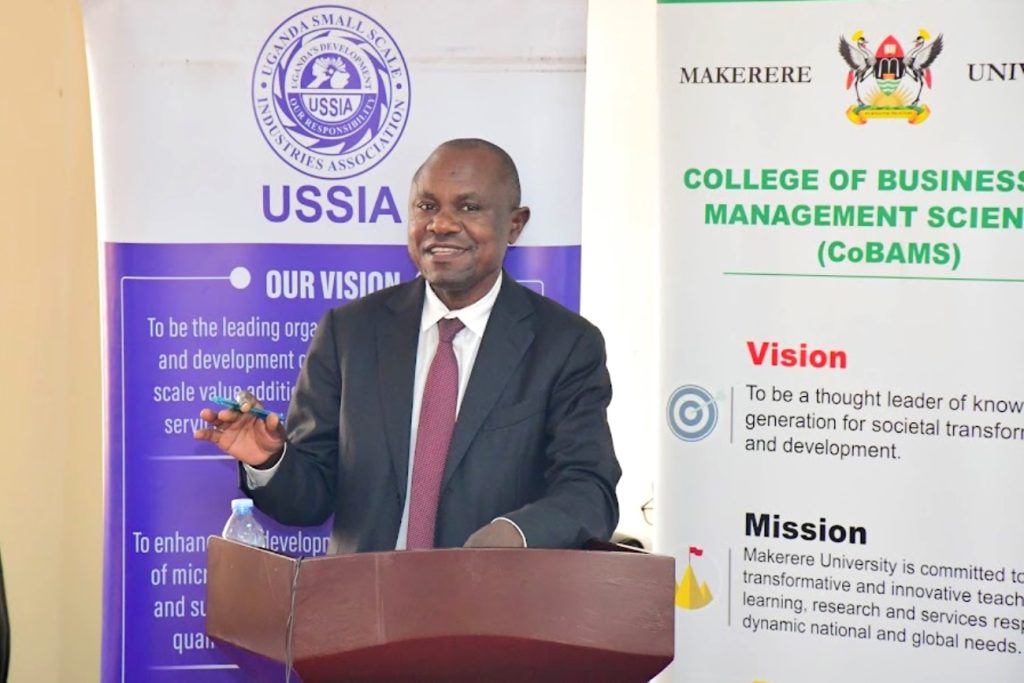
Prof. Hisali called upon the participants and key stakeholders to contribute to the discussion, when he said: “The informal sector is not abstract. The informal sector is with us. I therefore call upon you to share lived experiences and practices on this matter.”
Taking on the form of a plenary, the following ideas were raised:
- Financial constraints are a major blow to SMEs. This is further complicated by the payments required through registration, licensing, taxation, and other formalization processes including the high cost for online operations that require access to the Internet.
- Power outages in Uganda significantly affect business operations. When power is on and off, SMEs incur losses due to the nature of their activities.
- URA has a close working relationship with Uganda Small Scale Industries Association (USSIA). This partnership should be leveraged to reach out to business owners in the informal sector.
- The government should provide tax incentives to local investors. This incentive will positively impact formalization of businesses.
- URBS should come up with tough measures on standards in order to safeguard Ugandans from counterfeit products.
- URA and URSB should note that majority of players in the informal sector are not educated, and, as such, should come up with specialized awareness programmes delivered in a language that they can understand.
- Noting that despite the benefits of formalization, entrepreneurs fear to formalize their business, those concerned should invest time and resources to identify the reasons behind this attitude.
- Create awareness by deliberately popularizing the benefits of formalizing a business, and the incentives that accrue to someone who has formalized his or her business.
- Commending the stakeholder mapping and segmentation with respect to policy recommendation, the participants requested for the involvement of the Ministry of Gender, Labour and Social Development.
- Tackling the policy recommendation on digital transformation, the participants recommended the involvement of NITA-Uganda.
- Formalization of businesses and registration is affected by the high cost of Internet services and subscriptions. The participants reported that the high costs of Internet deter online operations.
Reflecting on the ideas raised during the plenary sessions, Prof. Hisali observed differences in the level of awareness regarding business formalization. He called upon the Uganda Small Scale Industries Association and Makerere University to continue the discussion with key stakeholders to conduct periodic awareness creation and training sessions.
On a positive note, the participants and stakeholders were notified that URA was in advanced stages of according tax holidays to SMEs. Prof. Faisal Buyinza, who interacted with URA, during the course of the research project (2022-2024), highlighted that effective July 2026, start-up business up to UGX 300million, will not be taxed. Such start up business, will enjoy a tax holiday of three years.”
The submission from Prof. Faisal Buyinza was supported by officials from URA who were physically present in the dissemination workshop held in the Conference Hall, at the College of Business and Management Sciences, Makerere University.
The participants were thoroughly engaged during the dissemination workshop, which entailed remarks from the College Principal, presentation by USSIA, project purpose and findings, research presentation, policy implications, question and answer session, and final reflections.
You may like
-


EU Earmarks Shs19.8bn for 15 Joint PhD Scholarships in Health, Environment Research
-


Call For Applications: MakNCD Masters and PhD Training Opportunities
-


Press Statement: Makerere University Congratulates Former Staff and Students on Successful Election to Public Office
-


Mak Hosts NCHE Competence-Based Education Standards Validation Meeting
-
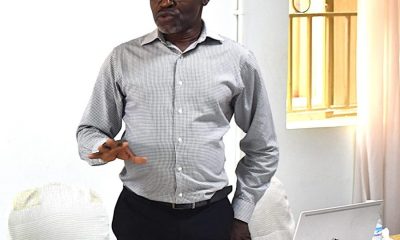

Enhancing Data Quality: NutriFishPlus Research Assistants Retooled Ahead of Baseline Survey
-
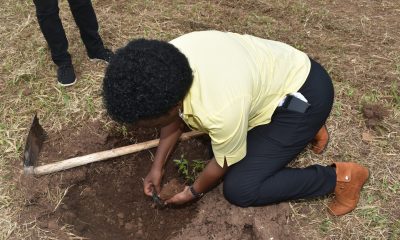

Call for Applications: QCF Postdoctoral Research Fellowships
Business & Management
Dr. Aisha Nanyiti is IEA’s Featured Economist for Jan 2026
Published
4 weeks agoon
January 8, 2026By
Mak Editor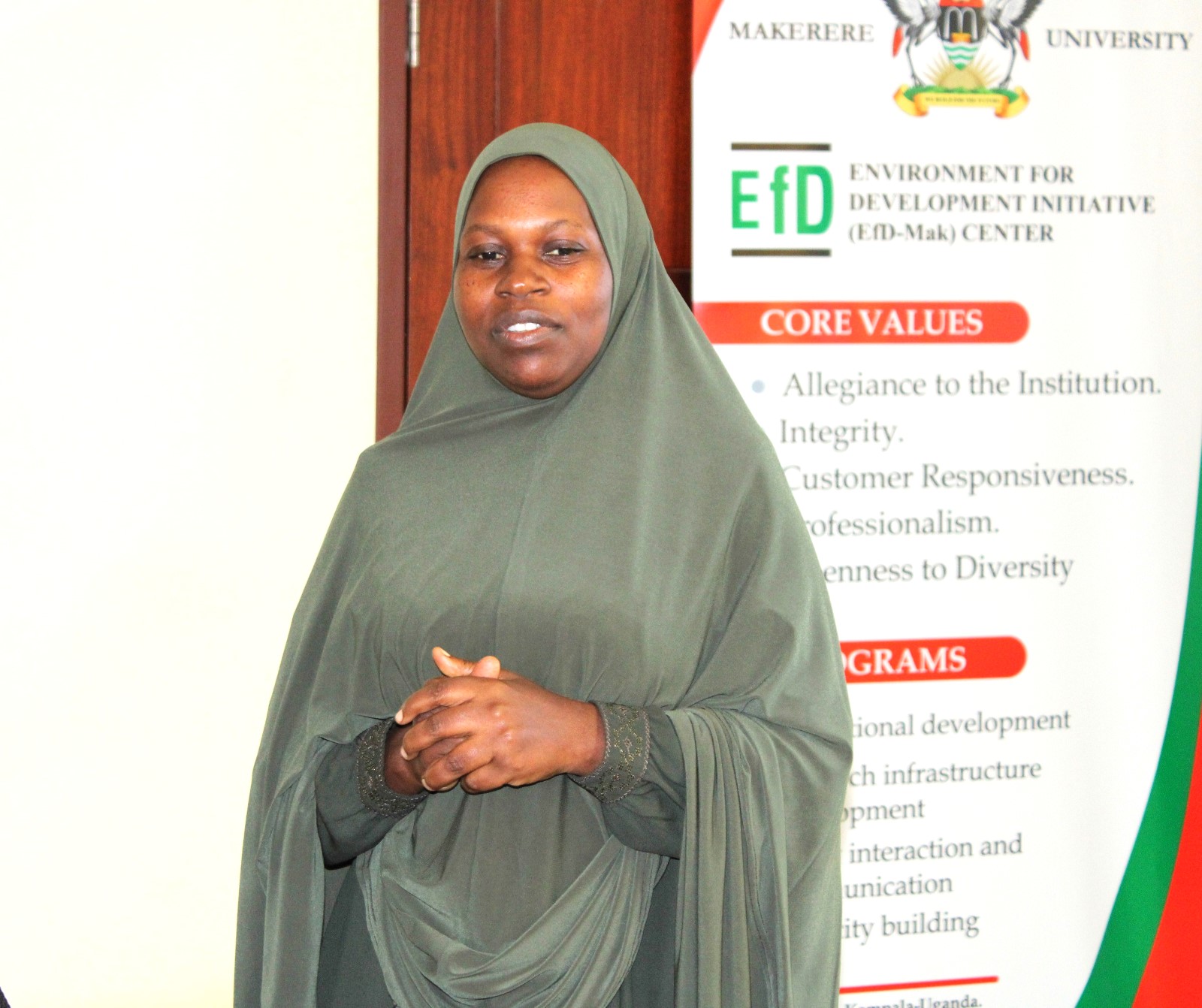
Dr. Aisha Nanyiti is a Lecturer at Makerere University’s School of Economics. She holds a PhD in Development Economics from Wageningen University, The Netherlands. Her research focuses on impact evaluation, causal inference, and behavioural economics, with expertise in Randomized Control Trials (RCTs), Lab‑in‑the‑Field experiments, and survey-based causal analysis. Aisha studies labour and financial markets, gender and women’s empowerment, poverty, and clean energy adoption, bridging rigorous evidence with real-world policy impact. She is also a Research Fellow at the Environment for Development Initiative (EfD‑Mak Centre), contributing to inclusive development and evidence-based policy in East Africa. She is the International Economic Association (IEA)’s featured economist for January 2026.
Business & Management
EfD Uganda Marks 2025 Milestones, Sets Strategic Path for 2025–2029
Published
2 months agoon
December 20, 2025By
Jane Anyango
Kampala, Uganda – December 19, 2025 — The Environment for Development (EfD) Uganda Centre at Makerere University has taken stock of its 2025 achievements and outlined its strategic direction for 2025–2029, with a strong focus on energy transition, climate change, and sustainable natural resource management.
The reflections were shared during the Centre’s annual end-of-year celebration, which brought together members of the EfD Steering Committee, deans from the School of Economics and the School of Agricultural Sciences, government officials, private sector actors, civil society organisations, researchers, and students.
Interdisciplinary Foundation Strengthens Impact
Addressing stakeholders, EfD Uganda Director, Professor Edward Bbaale, highlighted the Centre’s progress in institutional development, research, policy engagement, and capacity building. While acknowledging challenges encountered during the year, he noted that these provided valuable lessons as the Centre transitions into a new strategic phase under the EfD Strategic Plan (2025–2029).
Prof. Bbaale underscored the Centre’s unique positioning within Makerere University, noting that it is jointly anchored in the School of Economics and the School of Agricultural Sciences. This interdisciplinary foundation, he said, enables EfD Uganda to address complex development challenges such as energy transition, climate change, water resources, forestry, biodiversity, and agriculture from a holistic perspective.
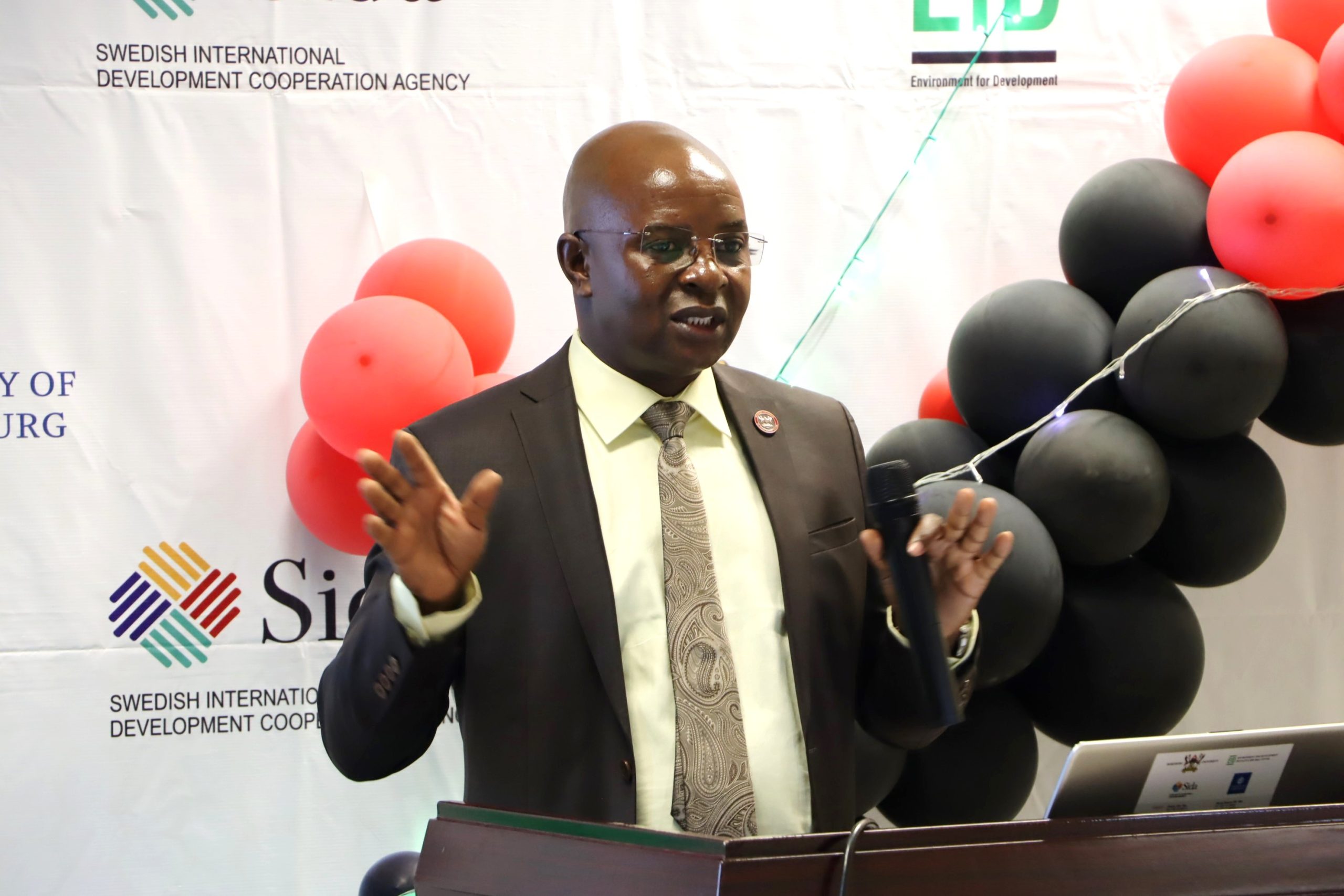
“This approach aligns with Makerere University’s policy on research institutes and reflects global trends that increasingly demand cross-disciplinary collaboration,” he said.
He further highlighted existing academic synergies, with PhD students in Economics and Agricultural Economics sharing coursework, and announced the launch of a Master of Science in Environment and Natural Resource Economics, recently approved by the National Council for Higher Education. The programme, jointly developed by faculty from both schools, is expected to strengthen training in environmental economics and natural resource management.
Strategic Direction for 2025–2029
Prof. Bbaale unveiled the Centre’s strategic plan for 2025–2029, anchored on six thematic areas: energy transition; climate change adaptation and mitigation; climate-smart agriculture; water resources management; forestry and biodiversity; and environmental quality.

He noted that climate change remains a cross-cutting issue across all themes, adding that EfD Uganda will continue to work closely with stakeholders to ensure its research informs national policy and practical interventions.
Over the next five years, the Centre’s research will focus on land use and biodiversity conservation, climate-smart agriculture, climate change adaptation and mitigation, and energy transition-areas expected to generate evidence-based solutions for Uganda and the wider region.

Key stakeholders identified for collaboration include the National Planning Authority, the Ministry of Finance, Planning and Economic Development (Climate Finance Unit), the Ministry of Agriculture, Animal Industry and Fisheries, the Ministry of Water and Environment, the Ministry of Energy and Mineral Development, and district local governments.
Major Achievements in 2025
Prof. Bbaale reported that the Centre concentrated its efforts on the three pillars of Makerere University: research, policy engagement, and training.
Policy Engagement
The Centre organised two high-level dialogues on climate-smart agriculture and a policy dialogue on e-mobility under the Inclusive Green Economy (IGE) programme.
“We chose e-mobility because it is a green mode of transport,” Prof. Bbaale said. “Through the IGE programme, we worked with senior civil servants and policymakers to explore how Uganda can transition to a greener economy.”

The programme also facilitated cross-country peer learning among Ethiopia, Tanzania, Kenya, Rwanda, and Uganda. He cited Rwanda’s rapid electrification of motorcycles through taxation and subsidies, and Tanzania’s success in universal rural electrification, as key lessons.
Capacity Building
The Centre conducted more than ten training sessions for fellows, researchers, policymakers, and graduate students. It also recruited a funded postdoctoral fellow Dr. Gemeda Olani Akuma. from Ethiopia, to work on natural capital issues.
“Postdoctoral fellows are critical to knowledge generation,” Prof. Bbaale noted. “If Makerere strengthens its postdoctoral programme, our research output will more than triple.”
He referenced benchmarking visits to South African universities with strong postdoctoral systems, noting that Makerere is steadily moving toward becoming a research-led institution.
New Projects and Institutional Growth
EfD Uganda launched five new projects and expanded its institutional partnerships during the year. These included Sida-funded initiatives, a consultancy with GIZ, the Centre’s first MakRIF-funded project, and grants from the Gates Foundation and the Carnegie Corporation.
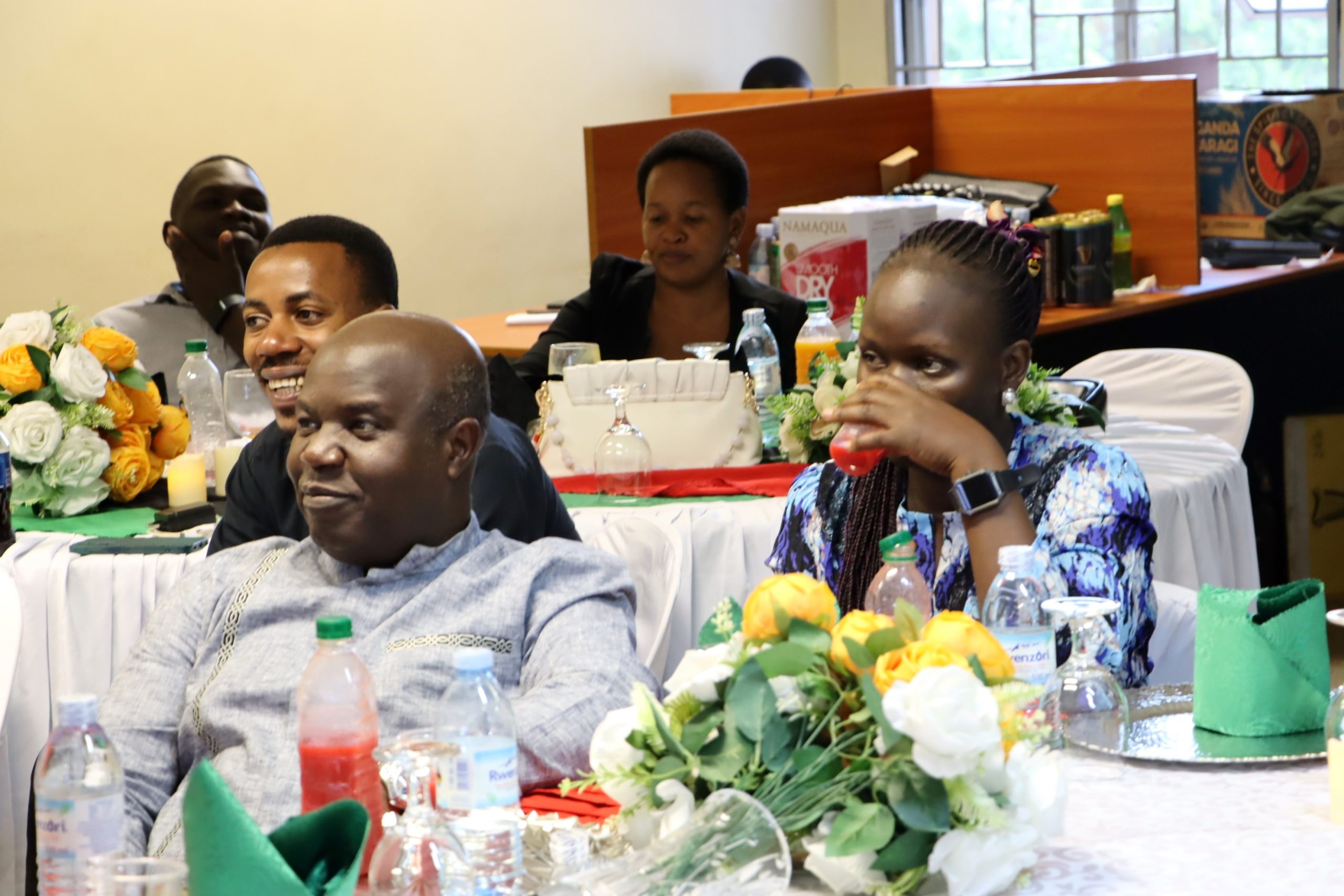
In institutional development, the Centre inaugurated 13 new advisory board members, strengthening governance and oversight. Prof. Bbaale also introduced the Centre’s core staff, praising their dedication and commitment to capacity building, including the mentorship of interns and teaching assistants some of whom have since joined institutions such as the Bank of Uganda.
Strengthening National and International Engagement
The Centre deepened collaboration with national institutions, including the National Planning Authority, the Ministry of Finance, Parliament, and the National Water and Sewerage Corporation. Among ongoing initiatives is a study aimed at improving bill payments at the utility to unlock new investments and service improvements.
EfD Uganda is also working with district local governments to build capacity in environmental valuation and natural capital accounting, supported by MakRIF funding from the Government of Uganda.. Trainings were conducted for districts in central Uganda and in Fort Portal.

At the international level, the Centre hosted visiting scholars, including Prof. Edwin Mchapondwa from the University of Cape Town, who trained government officials on community-based conservation, and Prof. Mark Purdon from the University of Montreal, who launched a book on carbon markets.
EfD’s Natural Capital Accounting Model Adopted by Government
A major highlight was the development of a natural capital accounting model, supported by GIZ and now adopted by the Ministry of Water and Environment. The Excel-based MoneyCap model, developed in collaboration with the Ministry of Finance, UBOS, and the National Planning Authority, supports policy assessment by comparing investment scenarios in natural capital.
“This places us at another level,” Prof. Bbaale said, noting that the model aligns with global climate finance discourse and Africa’s emerging coalition of finance ministers for climate action.

Prof. Bbaale warned that Uganda’s agriculture sector must urgently adapt to climate realities, citing erratic rainfall and rising temperatures. He stressed that climate-smart agriculture is critical to safeguarding livelihoods and food security.
The Centre also celebrated the graduation of a new cohort of Inclusive Green Economy Fellows, supported by Sida, and announced five new grants, including a Carnegie-funded project on household and SME energy efficiency and a grant for climate-sensitive macroeconomic modelling and the Makerere Research and Innovation Fund (MakRIF) from the Government of Uganda
Commitment to Policy-Relevant Research
In his concluding remarks, Prof. Bbaale reaffirmed EfD Uganda’s mission to generate research that delivers practical solutions for policymakers and communities.

“Our work asks a fundamental question: how much natural capital are we depleting in the pursuit of growth?” he said. “That is the frontier we are working on.”
He thanked the Centre’s team for their dedication and contributions throughout the year.
Centre Reaffirms Commitment to Collaboration
Dr. Peter Babyenda, Policy Engagement Specialist, reaffirmed EfD Uganda’s commitment to collaboration with policymakers, academia, civil society, and the media.
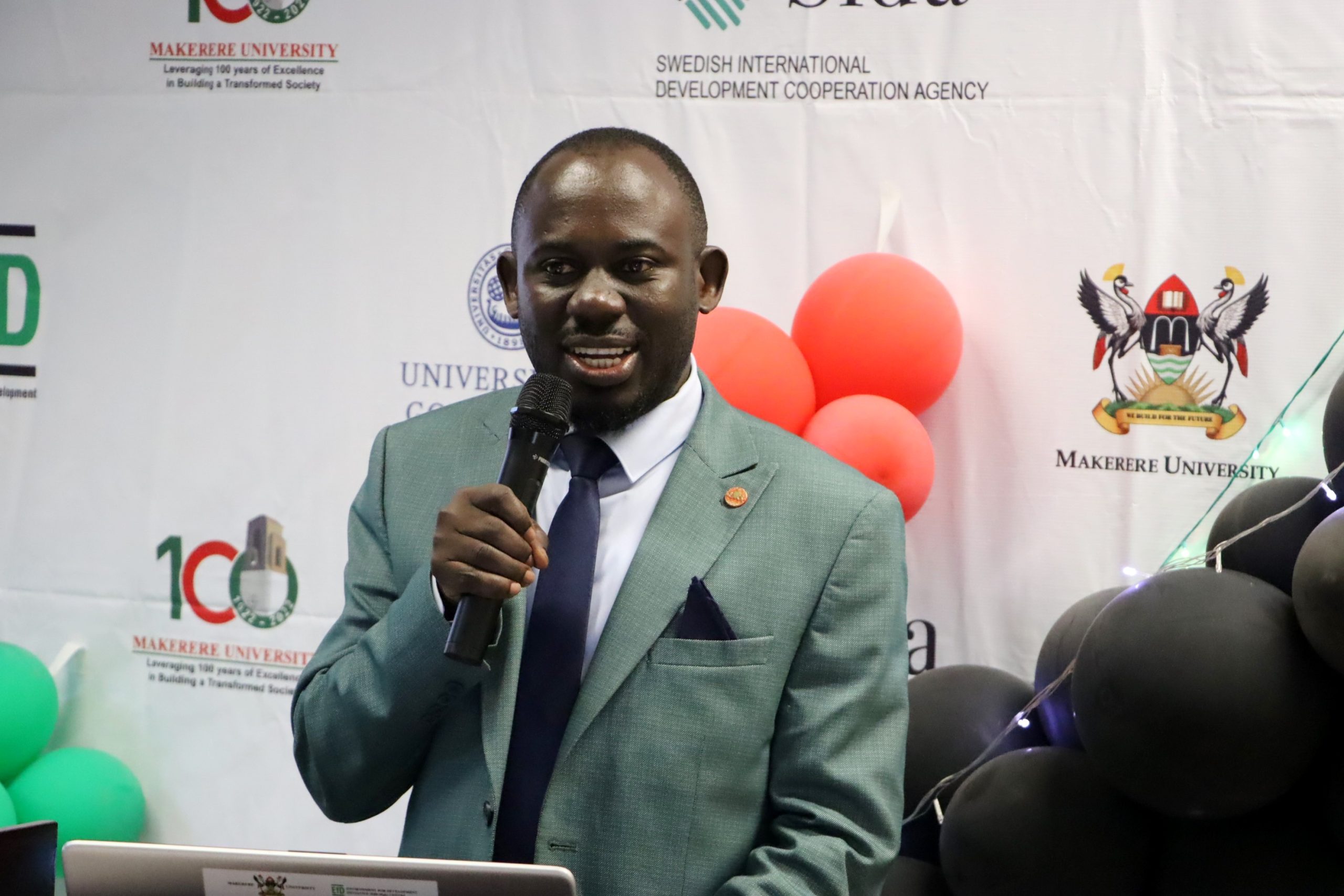
“Policy engagement includes working with the media,” Dr. Babyenda said. “We remain open to partnerships and invite stakeholders to engage with us.”
He thanked participants for attending the annual reflection event and encouraged continued networking.
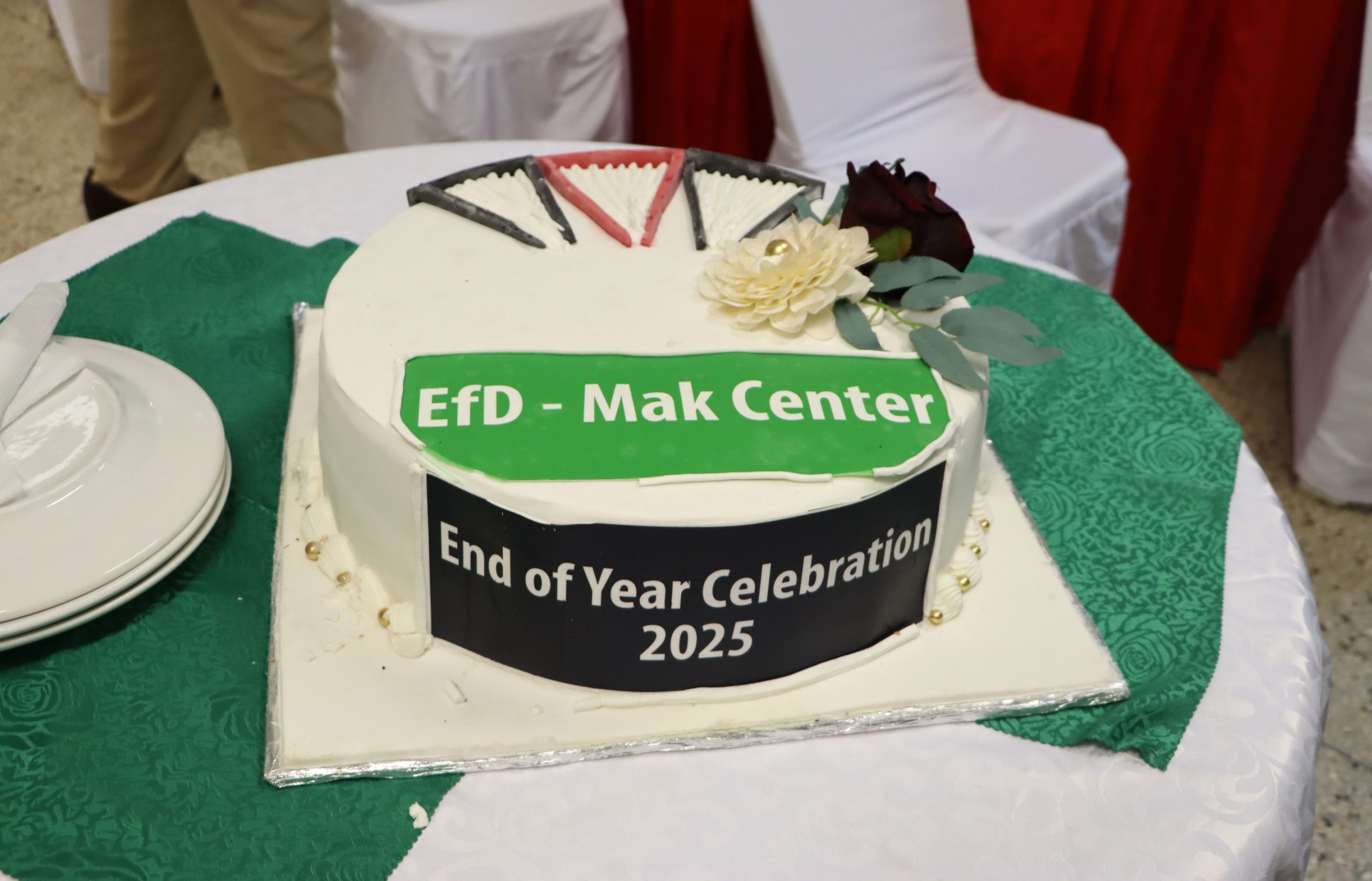
Jane Anyango is the Communication Officer, EfD-Mak Centre
Business & Management
Makerere University CoBAMS Staff celebrate 2025 achievements
Published
2 months agoon
December 19, 2025
December 18, 2025 – Coming after the successful completion of the examination season, and as the year comes to an end, the afternoon, evening and night hours of 18th December 2025, presented the best opportunity, to staff to reflect on the 2025 College of Business and Management Sciences (CoBAMS) achievements in a relaxed environment.
The ever-green Makerere University Guest House gardens provided comfort as staff continued to enjoy this lovely space situated on the Makerere University Main Campus.
The event brought together the Principal, Deputy Principal, Deans of the respective Schools, Heads of Department, academic, administrative, technical and support staff, as well as guests, in a mix of celebration, networking, and recognition.

The end of year staff get-together provided a platform to strengthen collegial relationships, and reflect on the College’s future direction. In the true sense of networking, the event also featured dance competitions amongst staff.
Recognition of CoBAMS staff who received the Vice Chancellor’s Excellence Awards 2025

A key highlight of the event featured recognition of the ten (10) members of staff from CoBAMS who received the Vice Chancellor’s Excellence Award 2025. These included: Early Career Scholar Category-Namugenyi Christabellah and Dr. Richard Ssempala, Mid-Career Scholar Category-Dr. Peter Kisaakye, Dr. Anthony Tibaingana, Dr. John A. Mushomi, and Dr. Kasimu Ssendawula, Senior Career Scholar Category-Dr. Stephen O. Wandera, and the Best Teachers Category-Dr. Patricia Ndugga, Dr. Faisal Buyinza and Mr. Fred Kasalirwe.
Presenting the CoBAMS Awards amidst applause from members of staff, the Deputy Vice Chancellor (Academic Affairs)-Prof.Sarah Ssali flanked by the Deputy Principal of the College, Associate Professor James Wokadala read a special message: “Your dedication elevates the standards of the College of Business and Management Sciences and brings distinction to Makerere University.”
Collective Achievements and Strategic Priorities

Professor Edward Bbaale, Principal of CoBAMS, in his end-of-year message, acknowledged the dedication of all staff and their contributions to the college’s success. “I sincerely thank all colleagues across our academic, research, administrative, and support units for your relentless dedication to advancing the mandate of the College. Your collective efforts remain the backbone of our success and institutional resilience,” he said.
Prof. Bbaale highlighted notable achievements in research and publications, congratulating staff who received the Vice Chancellor’s Excellence Awards and Best Teacher Awards. “These achievements reflect individual distinction and collective pride for our College. I encourage you to sustain this excellent performance,” he said. He further recognised faculty who secured research grants from Mak-RIF, international development partners including the Gates Foundation, UN-PAGE, GGGI, the World Bank, and Erasmus+, noting that such successes reflect growing global trust in CoBAMS scholarship.
The Principal underscored the college’s role in fostering institutional growth and partnerships. “I appreciate colleagues who have initiated and advanced Memoranda of Understanding with domestic and international partners. These platforms strengthen relevant academic training, impactful research, and policy engagement,” he said.
He highlighted new academic programs responsive to Uganda’s economic and societal needs, emphasising the college’s forward-looking and development-oriented approach.
Prof. Bbaale praised initiatives promoting staff welfare and cohesion, including the CoBAMS Physical Fitness Programme and the Mak-CoBAMS SACCO.
On infrastructure development, the Principal noted, “Government has allocated resources to commence the CoBAMS Infrastructure Expansion Project, and the University Council has approved two strategically located plots of land for its implementation. We shall actively engage the design consultant to ensure the buildings meet our teaching, research, innovation, and policy-engagement needs.”
He concluded his remarks by acknowledging life’s challenges alongside successes, extending condolences to staff who lost loved ones in 2025 and seasonal greetings: “As we step into 2026, I wish you and your families a year filled with God’s abundant blessings, good health, professional fulfilment, and personal joy. Merry Christmas and a Happy New Year to all.”
DVC Academic Affairs praises Research, Innovation, and Integrity
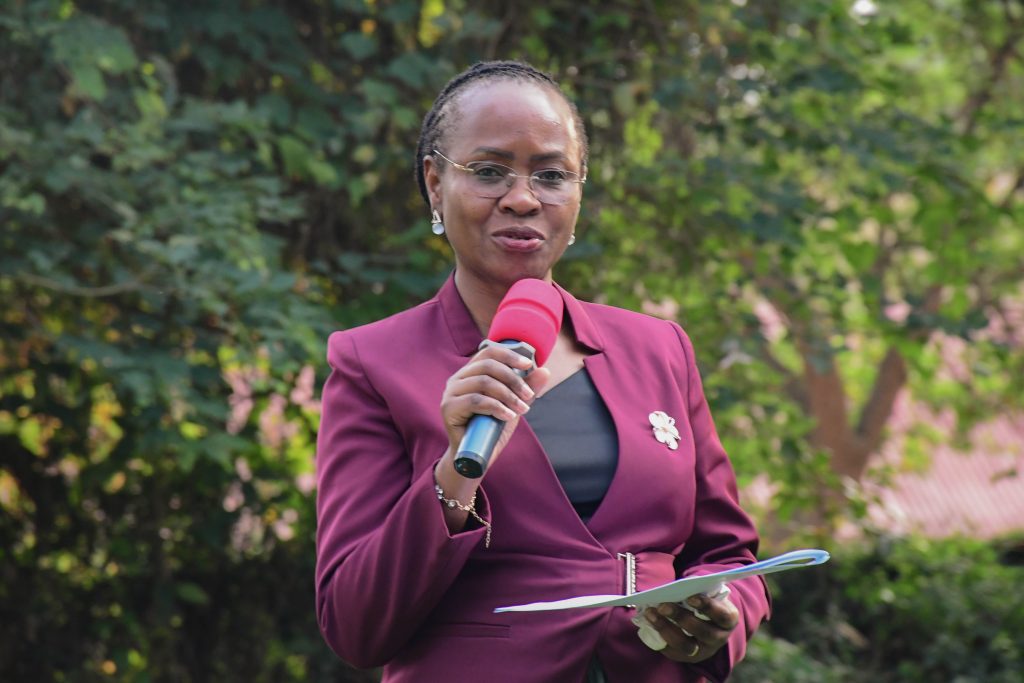
The Deputy Vice Chancellor for Academic Affairs, Professor Sarah Ssali, praised CoBAMS for its contribution to Makerere University’s strategic goals.
She extended warm greetings from the university management, including the Vice Chancellor, and underscored the importance of every staff member’s role. “Whatever role you play, you are adding a brick to this institution, just as those before us did,” she said.
Prof. Ssali highlighted the college’s research-led initiatives, emphasizing the importance of postgraduate and doctoral programs as a pipeline for academic excellence. “I commend CoBAMS for taking this seriously. Your work reflects the university’s strategic direction and internationalisation,” she said.
She noted the recent launch of the CoBAMS Working Paper Series and encouraged its development into four journals in economics, business, statistics, and planning in the near future. “This will allow graduate students to actively contribute, mentoring the next generation of scholars while strengthening Africa’s knowledge production and decolonising knowledge,” she explained.
The DVC Academic Affairs acknowledged CoBAMS for innovative approaches to research and value addition. “During the Entrepreneurship Expo, your work with coffee demonstrated how one thematic area can generate multiple products—from coffee oil to bath scrubs—showing creativity and value addition. Similarly, demography and population studies contribute crucial expertise, from census data to electoral processes,” she said.
Prof. Ssali encouraged the college to document and develop indigenous knowledge systems. “Your role as a college is to study local economic models, explore African-informed business and economic practices, and produce scholarship that reflects local realities,” she said.
She congratulated faculty members who secured research grants, published in peer-reviewed journals, or served as editors, noting that these achievements reflect both individual excellence and the academic culture of CoBAMS.
Reflecting on the Professor Emmanuel Tumusiime-Mutebile Centre of Excellence at Makerere University and the research promoted by the Tumusiime Mutebile Foundation, Prof. Ssali called for rigorous development of the initiative. “While research chairs focus on individual scholarship, Centres of Excellence build pipelines of knowledge for future generations, preserving the legacy of scholars namely Dr Mutebile in monetary policy, finance, and banking,” she said.
Networking and Teamwork
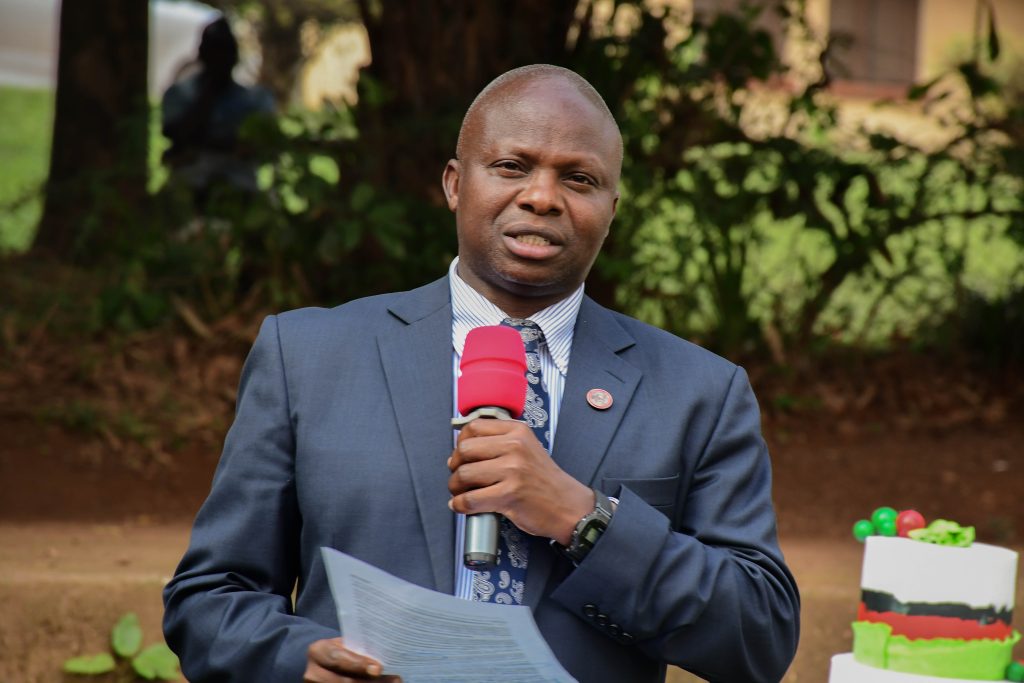
In his address, Associate Professor James Wokadala, the Deputy Principal of CoBAMS, emphasized the importance of networking and teamwork. “Today is a day for networking. This is a time to connect socially, celebrate, and reaffirm our commitment to serve Makerere University and, specifically, our College.”
He applauded staff for supporting the college’s teaching, learning, research, and student mentorship activities. He highlighted CoBAMS’ innovative initiatives, including the CoBAMS SACCO and the CoBAMS fitness club, which promote teamwork, wellness, and collegiality.
He thanked the event organisers for their efforts and acknowledged those who have supported administrative processes, such as fast-tracking promotion applications. He called upon staff to continue collaborating to serve Makerere University, the nation, and humanity.
Staff Appreciate the get-together moments
Charmed by the spirit of celebration, dance competitions amongst staff, and the choice of trending music, a significant number of staff stayed at the venue until the party came to a complete stop at 10:00p.m.
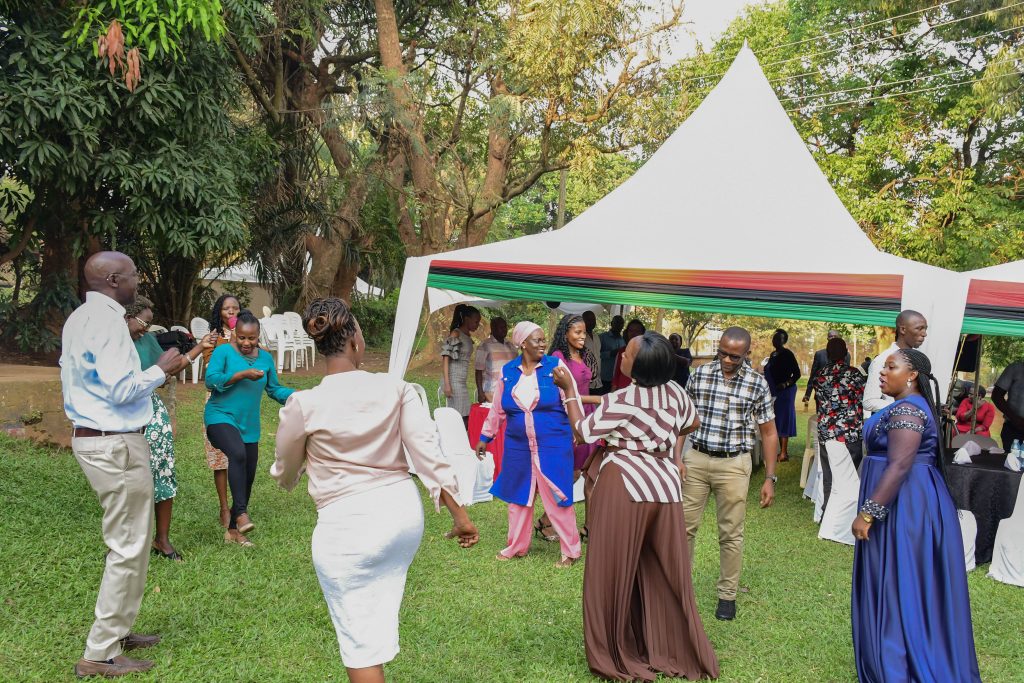
The following day (19th December 2025), the rejuvenated staff took to the College WhatsApp platform, and wrote messages, acknowledging being refreshed, feeling nice and young again. They requested the College leadership to plan for more of such engagements that promote teamwork, collegiality and good health.
Trending
-

 General1 week ago
General1 week agoPress Statement: Makerere University Congratulates Former Staff and Students on Successful Election to Public Office
-

 General7 days ago
General7 days agoPress Statement: Makerere 76th Graduation Ceremony
-

 General1 week ago
General1 week agoRe-Advert for the Position of the Second Deputy Vice Chancellor
-

 General2 weeks ago
General2 weeks agoMak Hosts NCHE Competence-Based Education Standards Validation Meeting
-
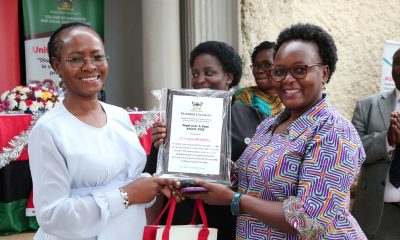
 Humanities & Social Sciences2 weeks ago
Humanities & Social Sciences2 weeks agoDr. Pamela Khanakwa Honored for Steering Record 18 PhD Candidates for the Mak 2026 Graduation
